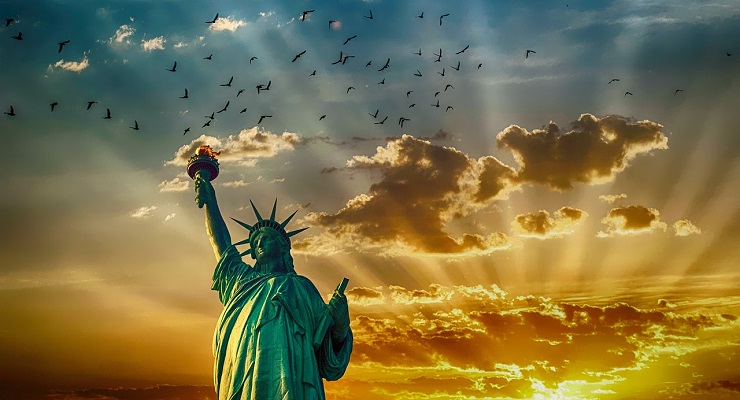
In a democracy, the people exercise ultimate political power. The two principal variants of democracy are “direct democracy” and “representative democracy”. American democracy, meaning democracy as practiced in America, i.e., the United States of America (USA) or simply the United States (US), employs both forms. According to representUs, ballot initiatives allow the people to directly exercise their right to govern and/or change laws, and at the same time, Americans also vote for representatives to exercise political power in their name. representUs concludes that it is, therefore, not wrong to view America as both a “republic” and a “democracy”, since the former notion also means “representative democracy.”
American democracy is often argued to be one of the most resilient in the world. This is based on the strength of America’s constitution, the institutions it enshrines, and America’s federal system of government. Despots are often able to deprive people of their rights because of their ability to modify constitutions as they see fit. The American constitution is one of the most rigid in the world. The National Conference of State Legislatures provides a description of the very challenging process it takes to modify the American constitution. However, apart from the rigid nature of the American constitution, the “bill of rights” provides checks on “big government” needed to ensure that the people will exercise democratic oversight.
American democracy is also strengthened by the separation of power created by the constitution. Unlike other states in the world, the American constitution veritably enshrines a republic. The reason is that the first arm of government in American democracy is the American Congress, which is the legislative branch and which is separate from the Executive and the Judiciary. Without law there is chaos and it is s/he or the group that makes the law that exercises political power. Representatives, therefore, make the laws and because they are accountable to their constituents, it is the people who ultimately govern. The American Executive, headed by the President and his cabinet, executes the laws, and its power to enact legislation is limited. This power is so limited that not only Congress, but the Judiciary can strike down Executive Orders. At the same time, the President’s veto power provides certain limits to the powers of the Executive and Judiciary. It is this “quarreling” of the three arms of government that prevents despotism and protects American democracy.
According to Vincent Ostrom, professor of political science emeritus at Indiana University, federalism is essential to American democracy. Everett Carll Ladd in an article in The Christian Science Monitor notes that for Ostrom, “”The crucial issue” is that the concept of federalism enables people to break out of the conceptual trap inherent in a theory of sovereignty that presumes there must exist some single center of supreme authority that rules over society.” Federalism in America allows the individual states to govern themselves and rely on the center essentially for defense, foreign policy, and macro-economic stabilization. Together with the electoral college system used to vote for the President, the federal system prevents big states from dominating smaller ones. Democracy may be majority rule but democracy fails if it does not protect minority rights. American democracy is thus strong because minorities are not only protected by the bill of rights but because they are also shielded by the federal system of government. At the same time, federalism also prevents minorities from lording over the majority.
Therefore, some reasons for the resilience of American democracy include America’s constitution; the separation of powers which it enshrines, and; the federal system of government. The American constitution is rigid and is not easily pliable to private or group needs while the “bill of rights” protects both minorities and individual rights. The separation of powers makes America a republic as it places the American Congress as the first branch of government. Because the three main institutions of government (Legislature, Executive, and Judiciary) are truly separate, they can easily check one another and this prevents despotism. Finally, the federal system reinforces democracy by eroding the concentration of power in the hands of a few or a single person and like the electoral college system protects minorities. Some states have smaller populations than others. In a centralized system, bigger states may become dominant. At the same time, a centralized system can fall prey to minority rule. Nevertheless, American democracy can also backslide. Despite all the constitutional guarantees to prevent the abuse of power, the presidency and/or tenure of the 45th President of the United States of America, Donald J. Trump, 2017-2021, demonstrated in full view that American democracy is not completely watertight but can also suffer deconsolidation.
Leave a Reply